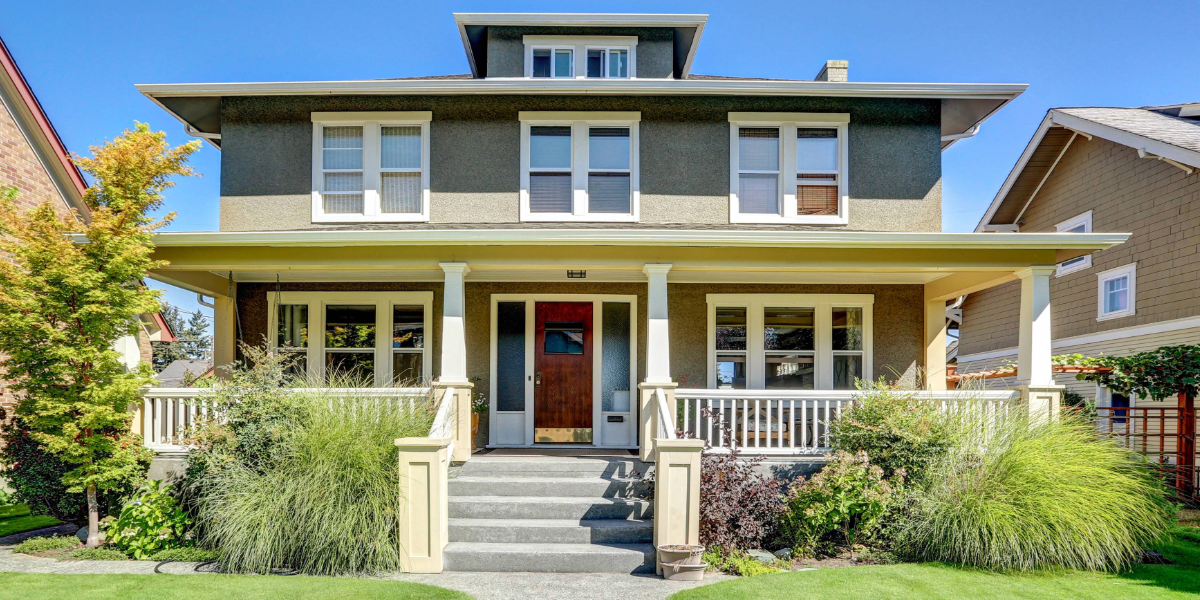Understanding real estate commissions in Washington is crucial for navigating property transactions. Here's what you need to know:
What is a real estate commission?
A real estate commission is a fee—typically 5–6% of the sale price—paid at closing when the transaction is successful. This fee compensates agents for marketing, negotiations, representation, and full transaction management.
Who pays?
Traditionally, sellers have covered both the listing agent’s fee and the buyer’s agent’s fee. Even with the 2024 rule changes, this remains true in nearly all transactions—sellers still fund buyer-agent compensation about 99% of the time.
While buyers now sign a Buyer Broker Services Agreement and their agent’s compensation must be stated separately, that fee is still almost always paid by the seller through negotiated contract terms. Buyers rarely pay out of pocket.
Why do commissions matter?
Commissions fund critical agent services, including pricing strategy, professional marketing, showings and buyer vetting, negotiations, inspection and appraisal coordination, and transaction management from contract to close.
What are the new rules? (As of March 15, 2024)
- Sellers now pay only the listing agent directly.
- Buyer-agent compensation can no longer be advertised on the MLS—but it is still typically funded by the seller through the buyer’s offer.
- Buyers must sign a Buyer Broker Services Agreement outlining services and how their agent will be compensated.
These updates changed how fees are documented, not who pays them.
Negotiation:
Commission rates remain fully negotiable and vary based on service level, property value, market conditions, and agent expertise. Even so, the structure still results in sellers funding both sides’ commissions at closing.
Recent legal rulings—including a 2023 antitrust case—have primarily increased transparency around how fees are disclosed and agreed upon. For example, on a $450,000 home with a 5% commission, the seller pays $11,250 to the listing agent, while the buyer’s agent fee is negotiated through the offer but still typically paid by the seller.
What affects commission rates?
Property type, location, and agent experience all influence commission structures. High-value areas like Seattle and Bellevue may see different dynamics than rural regions. Buyers and sellers can negotiate rates, but it’s important to weigh cost against the value provided by an experienced agent.
Understanding these shifts helps you make informed decisions and manage costs effectively when buying or selling real estate in Washington.
How do real estate commissions work in WA state?
Understanding how commissions are structured in Washington’s real estate market is essential for buyers and sellers. The process involves multiple parties, evolving documentation rules, and regulatory updates that have reshaped how compensation is disclosed—not who pays it.
How Commissions Are Paid and Divided
Washington’s commission system changed with the NAR Settlement, effective March 15, 2024.
Previously:
Sellers covered all commissions, including the buyer’s agent fee.
Under the new system:
Sellers pay their listing agent directly. Buyer-agent compensation is documented separately and negotiated in the buyer’s offer—but in practice, sellers still pay it in the vast majority of transactions.
Buyer-agent compensation may be:
- Paid by the seller as a concession
- Included in negotiated contract terms
- Rarely, paid directly by the buyer
Once commissions are paid, brokerages take their share and distribute the remainder to their agents based on internal splits. These updates have changed the paperwork, not the common financial structure.
Standard Commission Rates in Washington
Commission rates in Washington are not regulated and are open to negotiation. Rates depend on:
- Market trends
- Property value
- Level of service offered
In higher-value markets like Seattle or Bellevue, agents may work with varied percentage rates while maintaining competitive earnings.
As of January 1, 2024, brokers must provide buyers with a written Buyer Broker Services Agreement, outlining:
- Scope of services
- Length of representation
- Compensation structure (percentage or flat fee)
This ensures clarity—but again, the fee is almost always funded by the seller through the contract.
Commission Breakdown with Real Numbers
To understand how commissions work, here are two examples:
Example 1: $450,000 home at 5%
Total commission: $22,500
- Listing agent receives: $11,250 (paid by the seller)
- Buyer-agent compensation: still structured through the offer, but almost always paid by the seller
Example 2: $890,000 home at 5%
Total commission: $44,500
- Listing agent share: $22,250 (seller-paid)
- Buyer-agent fee: arranged through the offer, still typically seller-funded
Brokerage splits then determine how much each agent ultimately receives.
These examples highlight how the updated system makes payment responsibilities clearer while maintaining fair compensation for agents.
What affects real estate commissions in Washington?
Several factors shape how commission rates are determined.
Property Type and Location
Property type significantly impacts commission expectations:
- Single-family homes typically follow standard rates
- Luxury properties may require specialized marketing
- Condos and townhomes involve additional HOA considerations
- Waterfront or historic properties require niche expertise
- Commercial properties involve complex, longer timelines
Location also plays a major role. Seattle, Bellevue, and Redmond often have different dynamics than rural Eastern Washington. High-demand areas may see more competitive structures, while lower-priced areas may require more agent labor for a successful sale.
Market Conditions
Market trends heavily influence commission structures. Factors include:
- Inventory levels
- Days on market
- Competition among listings
- Seasonal shifts
- Sale-to-list price ratios
Fast-moving markets require different effort and strategy than slow or luxury markets.
Agent Experience and Service Level
Experience significantly affects commission rates. Highly skilled agents often justify standard rates due to:
- Local market expertise
- Strategic pricing
- High-quality marketing (photos, videos, drone, digital ads)
- Negotiation skills
- Vendor connections
- Full-service offerings, including staging guidance and transaction coordination
Limited-service models may offer lower fees but fewer services.
Technology, communication, and efficiency also matter—agents leveraging advanced tools and offering consistent communication often secure standard rates due to the value they deliver.
How to negotiate and lower real estate commissions
Negotiating commission rates comes down to timing, clarity, and knowing what services you need.
When and How to Negotiate Commissions
- Sellers should discuss commission rates during the initial listing consultation.
- Buyers should discuss expectations before signing the Buyer Broker Services Agreement, though they rarely pay out of pocket.
Ways for Sellers to Save on Commissions
Sellers can tailor commission structures by:
- Requesting a detailed breakdown of services
- Negotiating based on the level of support needed
- Using variable or tiered commission models
Balancing Cost and Service Quality
Lower commission rates can reduce marketing quality, exposure, and negotiation effectiveness. To maximize value, work with experienced agents who understand your local market and offer full-service support.

Real examples and getting the most value in Washington real estate
Understanding real commission splits reveals how negotiations impact fees.
Commission Calculation Examples
Seattle home — $850,000 at 5.5%
Total commission: $46,750
Split between brokerages, then split again between agent and brokerage.
Bellevue luxury home — $1,200,000 at 5%
Total commission: $60,000
Reducing to 4.5% saves the seller $6,000.
Even small percentage changes can significantly affect total costs in higher-price markets.
How Sellers Can Get the Most from Their Agent
Sellers benefit from:
- Strong marketing and strategy
- Professional staging and presentation
- Skilled negotiation
- Access to trusted vendors
- Full-service listing support
- Programs like Every Door’s turnkey services (repairs, prep, staging without upfront cost)
How Buyers Benefit from Agent Services
Agents help buyers by providing:
- Market insights
- Pricing and valuation guidance
- Offer strategy
- Early/off-market access
- Inspection and appraisal coordination
- Transaction management
- Ongoing support after closing
Their services are typically paid for by the seller.
Key Points About Washington Real Estate Commissions
- Commissions are negotiable.
- Documentation rules changed, but sellers still pay buyer-agent compensation in nearly all cases.
- Commission rates vary based on market, location, property type, and service level.
- Quality representation often leads to better outcomes, even at standard rates.
- Brokerage-agent splits vary and can influence flexibility.
Understanding these factors helps buyers and sellers make informed decisions throughout the transaction.

FAQs
What do the recent changes to Washington's commission rules mean for buyers and sellers?
The 2024 adjustments increase transparency around compensation. Buyers must sign representation agreements, and fees must be clearly documented—but sellers still typically pay both sides through contract terms.
How can buyers negotiate their agent's commission fees?
Buyers can negotiate, but most do not. In competitive markets like Seattle, agents are often flexible, but the fee is still almost always covered by the seller as part of the purchase agreement.
How do property type and location affect real estate commission rates?
Higher-value or specialized properties may justify different commission structures. Rural homes may require more marketing effort, while luxury listings may require sophisticated strategies. Negotiation varies depending on these factors.

